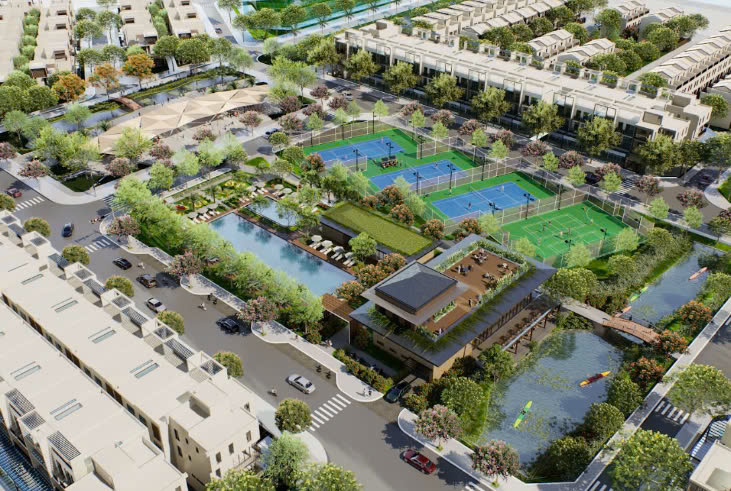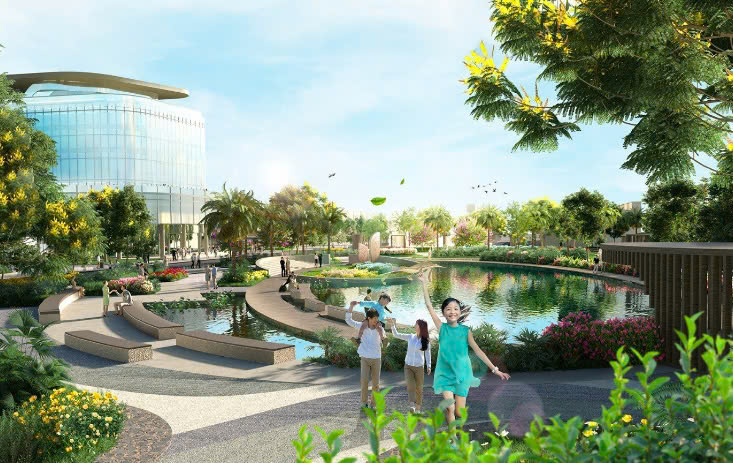Vietnam is undergoing a strong development phase in the industrial real estate sector, particularly with industrial parks and factories, driven by increasing domestic and foreign investment. However, while this growth brings many economic benefits, the green transition in the industrial real estate sector is progressing slowly. This not only impacts the environment but also poses risks to the sustainability of the economy.

Current Situation and Challenges
In the context of globalization and growing attention to sustainable development, many countries have pioneered the adoption of green solutions in industrial real estate. In Europe, countries like Germany and Switzerland have implemented strict policies to ensure that industrial buildings meet high green standards. For example, Germany has introduced energy certification requirements for all new constructions, while promoting the use of renewable energy and effective waste management systems.
In contrast, in Vietnam, despite increasing attention to environmental issues, the green transition in industrial real estate has not reached the desired pace. According to a report from the Ministry of Natural Resources and Environment, only about 15% of industrial parks in Vietnam currently apply green solutions. The delay in this transition is due to a combination of several factors.
High Investment Costs
One of the main factors is the high cost of investment in green technology and sustainable infrastructure. Installing renewable energy systems like solar panels or advanced wastewater treatment systems requires significant capital. Many businesses, especially small and medium-sized enterprises, may struggle to meet these demands. According to a World Bank survey, investment costs for green technology can increase by 20% to 30% compared to traditional solutions, which reduces the motivation to invest in green projects.
Lack of Supportive Policies
The lack of supportive policies and tax incentives for green projects is also a hindering factor. Compared to other countries, Vietnam lacks specific policies to encourage the adoption of sustainable solutions. Although some policies, such as Decision No. 1393/QD-TTg on the National Strategy on Green Growth, exist, their implementation has not been consistent or effective. Many investors feel that the lack of government support has diminished the incentive to transition to green solutions.

Limited Awareness and Knowledge
The lack of awareness and knowledge about the benefits of green transition also contributes to the slow progress. Some businesses and investors have yet to fully recognize the long-term benefits of adopting green solutions, such as reduced operating costs and increased property value over time. According to a study by the Central Institute for Economic Management (CIEM), only about 25% of businesses in Vietnam understand the economic and environmental benefits of adopting green technologies.
Future Directions
To accelerate the green transition in industrial real estate, a comprehensive strategy is needed from both the government and the private sector. The government should consider introducing incentive policies and tax relief for green projects, while also providing financial support to businesses investing in clean technology. For example, implementing tax incentives for renewable energy projects has proven effective in many countries.
In addition, raising awareness and providing education about the benefits of the green transition is crucial. Training programs for businesses and investors can help them better understand the advantages and how to implement green solutions, from energy savings to efficient waste management. Organizing workshops and courses on green technology can also contribute to shifting perceptions and actions within the business community.
Finally, collaboration among stakeholders, including government agencies, businesses, and non-governmental organizations (NGOs), will play an essential role in accelerating the green transition. Sharing experiences and best practices from other countries can also help Vietnam build an effective green transition model.
Vietnam’s industrial real estate sector faces significant challenges in its green transition. Although there are still difficulties, with appropriate supportive policies and a concerted effort from stakeholders, Vietnam can move toward a more sustainable future. This will not only help protect the environment but also create long-term development opportunities for the economy and communities.
Hotline
Hotline